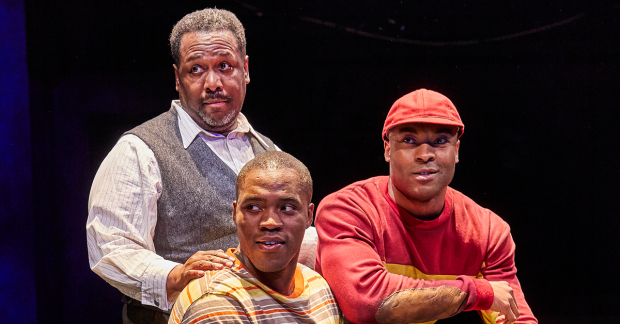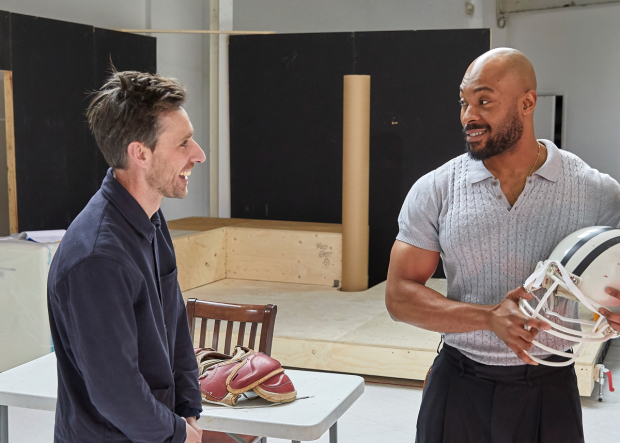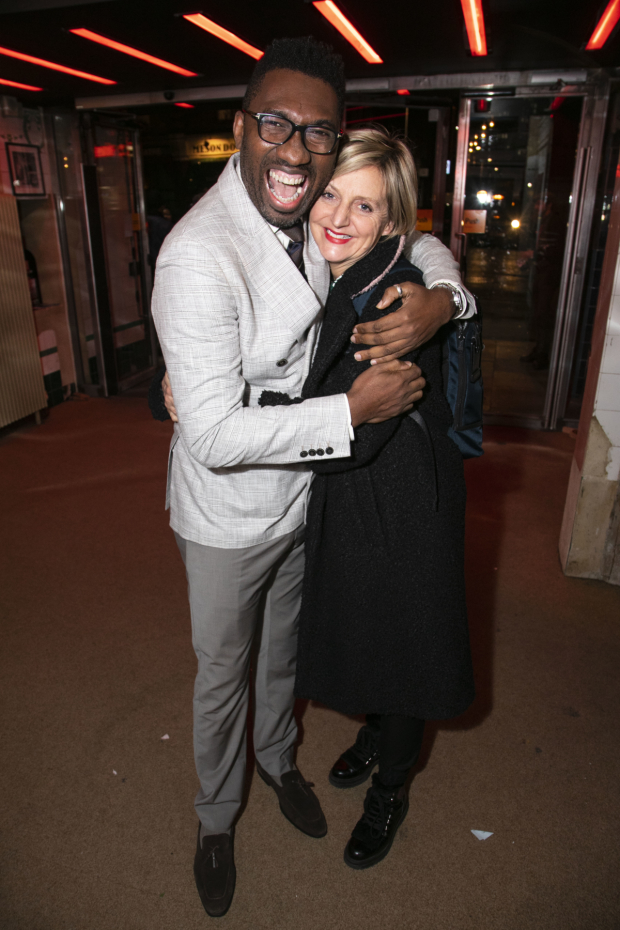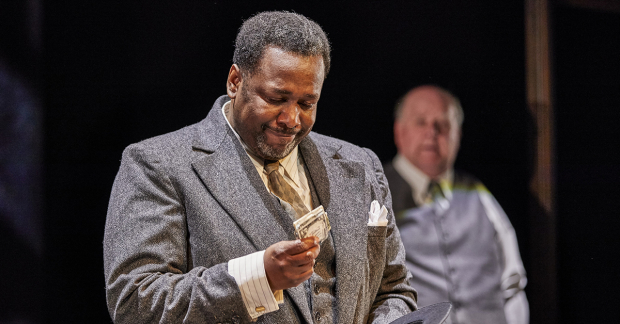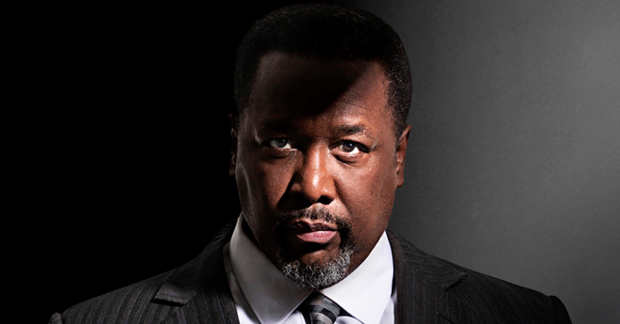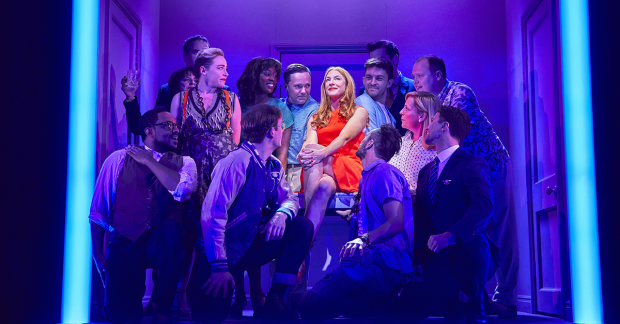Were critics sold on Young Vic's Death of a Salesman?
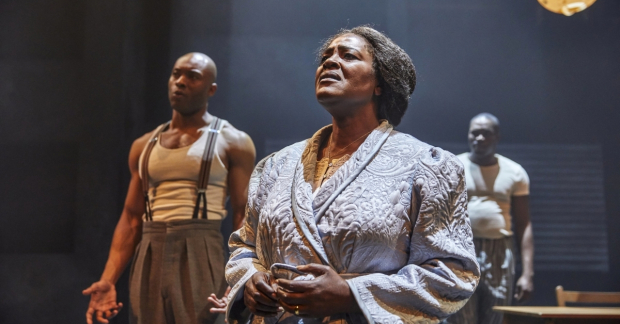
© Brinkhoff Moegenburg
Daisy Bowie-Sell, WhatsOnStage
★★★★★
"Marianne Elliott and her team are proving they have a palpable gift for shaking up a classic. With her gender flipped Company just finished in London – where the show's 35 year-old bachelor Bobby was turned into 35 year-old bachelorette Bobbie – this production of Arthur Miller's play, co-directed with Miranda Cromwell, is turned into an African American tragedy."
"At the centre of it all is Wendell Pierce as Willy Loman, the salesman who for 35 years has driven the roads and highways of America peddling his wares. Pierce's Loman cuts a large, shuffling figure, which betrays his exhaustion easily. His arms hang about his sides, his feet turn in, he's a shadow of his former self, tired with never managing to be 'number one'."
"On Anna Fleischle's grey stage, all Escher angles that climb to the ceiling, you can't help but see the Lomans as prisoners. Fleischle has the windows and doorways float down on wires and we see the Lomans looking out, stuck within."
Ann Treneman, The Times
★★★★★
"The casting is spot on. Willy is played by Pierce, the beloved Bunk of The Wire fame, with a soul-reaching grasp, one moment reaching for the stars, the next shouting into the gutter. The indomitable Sharon D Clarke makes the part of his loyal wife Linda into something special, her singing weaving its own spell at times. Their screw-up son Biff is played by charismatic Arinzé Kene (mostly in a vest) while Martins Imhangbe goofs around as the younger Happy who only really lives up to his name when he's chasing women."
"The music, a mix of gospel, blues and jazz, is by Femi Temowo, also helps us hear this anew. It begins with cast members walking out of the wings, through the stalls, down the aisle, their gospel hymn reverberating around the room, creating an atmosphere that permeates the theatre."
Henry Hitchings, Evening Standard
★★★★★
"Willy repeatedly returns to crucial episodes from long ago. When he does so, other characters appear in freeze frame, as if these fateful moments are etched in his mind. Fleischle's design heightens the sense of being immersed in his thoughts, switching between the past and the present, and creates the impression that the entire fabric of his existence is warped."
"Co-directors Elliott and Cromwell aren't the first to make the Lomans an African-American family. But this choice gives an extra frisson to the story of their ambitions and disappointments in '40s Brooklyn. And while this isn't as bold a reinvention as Elliott's recent radical take on Stephen Sondheim's Company, she and Cromwell have crafted something fresh, compassionate and ultimately devastating. "
Dominic Cavendish, The Telegraph
★★★★★
"Oscillating between stoical serenity and flashes of anger, part teddy-bear part tyrant figure, Pierce at one point vents his frustration on Kene's Biff by placing angry emphasis on the word 'boy'; that word gives you a note of inherited self-loathing. Note being the operative word; there's a fine musicality to this production – bluesy music steals into it, phrases sounded in the reveries into which Loman loses himself are sung, a gospel number becomes a soulful motif."
"We're told this is the first time London has seen a black actor take on this Everest of a role. On paper, then, Elliott's production (with co-director Cromwell) makes history. But such is the meticulousness of the creative approach – matching the intelligence of Elliott's reinvention of Sondheim's Company – that the evening proves a landmark one on account of its revelatory power."
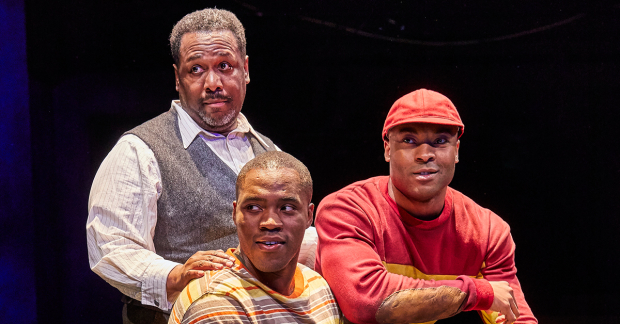
© Brinkhoff Mogenburg
Andrzej Lukowski, Time Out
★★★★★
"The idea of Willy as a victim of racism isn't something Elliott and Cromwell follow through with absolute rigour. But it gives an extra dimension to Pierce's excellent Loman, who can appear hale, hearty and charismatic one minute and irrevocably damaged the next – he is a f**k up, but he has been defeated by more than just his own shortcomings."
"Miller didn't tend to write amazing roles for women, and Clarke isn't the first great actor to be a tiny bit wasted in the important but small part of Willy's wife, Linda, despairingly enabling him to go through with the charade that he's a success. Still, in Elliott and Cromwell's moving, provocative, atmospheric production, musical theatre great Clarke does get to sing at intervals. A closing, spiritual-style number feels like a generous gesture, a sheen of dignity to Willy's tragedy."
Holly Williams, The Independent
★★★★
"Made up of dark grey boxes, half shadowed or suddenly illuminated, Fleischle's set should serve the shifting states of Willy's mind well; in fact, it often feels awkwardly clunky, like an oft-repainted black box theatre has been plonked on the Young Vic's main stage."
"Mostly this is a straight-up production, however, and while every performer has moments of real power, it can be a little strained towards Serious Acting. That said, Pierce makes for a markedly comic Willy Loman – he twists rapidly between the jovial bonhomie of the salesman and his own quick temper, but it's a snap that becomes less amusing and more destructive as the play charts his decline. You long for his children to rescue him, and understand why they cannot."
Natasha Tripney, The Stage
★★★★
"Pierce is suitably smooth and initially quite jovial as Willy – funnier than most in the role – but he is also cruel when pressurised and desperate when cornered, repeatedly, aggressively silencing his wife. His warmth makes his collapse harder to watch. Kene captures Biff's complicated mixture of affection for, and near-physical repulsion from, his father. Clarke is even better as Willy's wife Linda, an island of calm and determination surrounded by a sea of hotheaded men, demanding that her sons respect their father, that they acknowledge and understand him.
"In Elliott and Cromwell's hands, the play becomes not just about race but also about mental health, the fragility of masculinity, and the way these thing are so often entangled. It's quite impressive how contemporary it feels in this respect."



